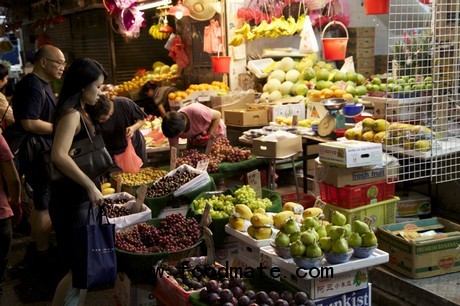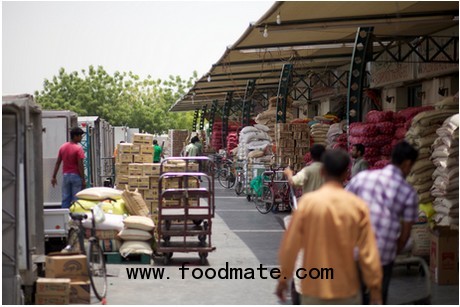 With countries in Asia and the Middle East becoming more lucrative markets for European suppliers of fresh produce, Don Limón, a German produce supplier, is expanding into those regions. But, just as they've done with all other expansion they've undertaken, they know that understanding the differences between each region is important if they want to successfully expand.
With countries in Asia and the Middle East becoming more lucrative markets for European suppliers of fresh produce, Don Limón, a German produce supplier, is expanding into those regions. But, just as they've done with all other expansion they've undertaken, they know that understanding the differences between each region is important if they want to successfully expand.“We are currently focusing on far range markets in the Middle East and Far East,” said Andreas Schindler of Don Limón. He noted that they're looking at countries in those regions based on specific criteria that helps them determine the best markets. “We see where there are good economies, where there are emerging markets, where there's been large growth in the last 10 years, where there's a good supply structure and where there's a strong local economy.” Middle Eastern and Asian countries fit the bill there, and they plan on participating in a trade show in Dubai in November, but Schindler noted that there's much more to be done in addition to identifying key markets.

“We see great opportunities in those regions, but they are different,” he said. The countries which they're focusing on in the Middle East don't have large agricultural bases, so those countries want to import a wider variety of produce. Asian countries, on the other hand, tend to have more agricultural activity, so they usually import only specific kinds of produce.
“Asian countries mostly have their own agricultural production,” said Schindler. “So China the markets in China are looking for out of season products from the southern hemisphere, because in season they produce by themselves.” China grows oranges and cherries, and Vietnam and Thailand also have similar robust production. Because those countries are selective about what to import, mostly apples, grapes and pears, he added that they have to approach those countries in a particular way.

“We see the demand over there, and then we fill those gaps,” he said. He added that China, in particular, looks not only for certain kinds of produce, but for a certain quality of produce.
“You may not see the same level of wealth in most of China as you see in Hong Kong, but the fruit in the supermarkets is great,” he said. “Chinese consumers want the biggest and the best fruit. So buyers from those countries are not looking for the lowest price; they want people they can trust to provide them the best fruit.” Deep knowledge of the supply chain is necessary in order to gain that trust and expand into new markets, and that's what Don Limón can provide, said Schindler.
“You have to really know all of the details of production with Chinese buyers,” he said. “So for them, and for all our customers, we are really selling knowledge and service. Our customers are both the producers who we distribute fruit for as well as the buyers who sell the fruit at the retail level. But because, as process chain managers, we understand all the details, we can provide a great service.”





